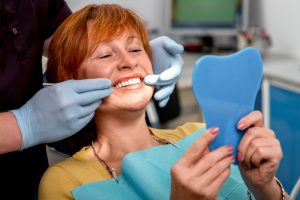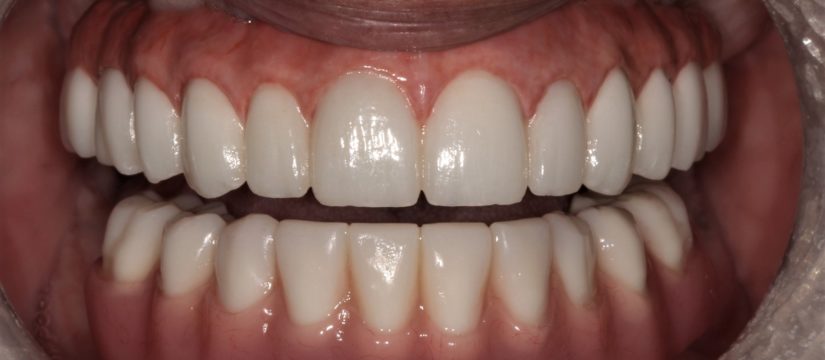
Choosing between All-on-4 and overdenture can significantly impact your dental health and day-to-day comfort. In this direct comparison, we outline the pros and cons, the investment involved, and the lifestyle implications of each option, enabling you to navigate your decision with confidence. Dive into our concise guide to weigh your options with ease, focusing on the “all on 4 vs overdenture” debate.
Key Takeaways
- All-on-4 dental implants provide a permanent, cost-effective solution with superior aesthetics and stability, reducing bone loss and discomfort compared to conventional dentures.
- Overdentures offer an alternative that is more affordable and stable than traditional dentures, requiring fewer implants but may have a less natural feel compared to All-on-4 implants.
- A patient’s decision between All-on-4 implants and overdentures should consider factors such as cost, bone health, personal preference for permanency or removability, and the need for potential additional procedures such as bone grafting.
Understanding All-on-4 Dental Implants
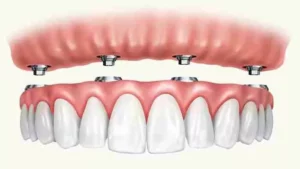 All-on-4 dental implants offer a permanent solution for those struggling with missing teeth. This comprehensive treatment utilizes just four implants to support a complete set of new teeth, effectively restoring your smile. The benefits of All-on-4 dental implants are manifold:
All-on-4 dental implants offer a permanent solution for those struggling with missing teeth. This comprehensive treatment utilizes just four implants to support a complete set of new teeth, effectively restoring your smile. The benefits of All-on-4 dental implants are manifold:
- They provide fully-functional new teeth quickly
- They restore appearance and confidence
- They are cost-effective
- They offer superior aesthetics
- They reduce bone loss
- They provide secure attachment without discomfort
- They are an easy-to-maintain replacement for missing teeth.
Unlike conventional dentures, All-on-4 dental implants offer the following benefits:
- Firmly anchored in the jawbone, providing stability similar to natural teeth
- Eliminate the discomfort often associated with removable dentures
- Provide a natural, confident smile
- Revolutionize oral rehabilitation, offering a permanent solution for those who have lost all their teeth
The All-on-4 Procedure
The All-on-4 dental implant procedure is a surgical procedure that involves a series of carefully planned steps. The procedure includes:
- Initial diagnosis and treatment planning
- Extraction of any remaining teeth
- Implant placement
- Final restoration
The procedure typically takes between one and three hours per arch, and up to four hours if both upper and lower jaws are treated on the same day.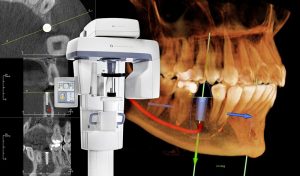
The procedure employs advanced surgical techniques and modern tools like:
- Drill kits
- Surgical handpiece and motor
- Tissue punch kit
- Digital caliper
- Basins
- Implant surgical drill kit
These tools ensure the proper placement of implants and preservation of any remaining teeth. Dental professionals employ strategic placement of only four implants in the jawbone, ensuring the best location for the implants.
Longevity and Maintenance
All-on-4 dental implants are known for their durability. With proper maintenance, they can last up to 20 years or more, aligning closely with the longevity of natural teeth. Maintenance of All-on-4 dental implants involves:
- Regular cleaning at least twice a day using a soft brush and non-abrasive toothpaste
- Flossing once daily
- Using an antibacterial mouthwash
- Regular dental check-ups every six months to ensure the health of the implants.
Despite their many benefits, potential complications may arise with All-on-4 dental implants. These may include:
- Bulkiness
- Breakages
- Damage to adjacent teeth
- Poor placement or construction
- Infections
- Looseness
- Gum inflammation
- Bad taste or breath
- Pain
- Pus around the implants
These complications underscore the importance of working with a skilled dental professional and following a proper dental care regimen.
Grasping Overdentures: A Removable Solution
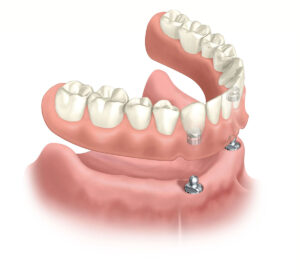 Overdentures, also known as snap-on dentures, offer a more affordable alternative to All-on-4 dental implants. Here are some benefits of overdentures:
Overdentures, also known as snap-on dentures, offer a more affordable alternative to All-on-4 dental implants. Here are some benefits of overdentures:
- Improved bite strength
- Enhanced functionality
- Increased comfort
- Fewer limitations when it comes to eating
Unlike traditional dentures that can be unstable and uncomfortable, overdentures provide advantages over a traditional denture.
The fitting of overdentures usually entails taking impressions and registering the bite during the initial appointments. This process ensures a perfect fit and addresses the issue of tooth loss effectively, helping to replace missing teeth. Overdentures are attached to dental implants, offering a more stable and comfortable option compared to conventional dentures. This approach enhances chewing capability, retention, and stability of the prosthesis.
The Overdenture Process
The process of fitting overdentures includes the following steps:
- Taking impressions of the patient’s mouth
- Registering their bite to ensure a perfect fit
- Fitting the patient with semi-permanent implant-supported dentures
These initial appointments are crucial for ensuring a comfortable and secure fit for the overdentures.
Patients can anticipate a period of recovery that may span a few weeks after the fitting of overdentures. This period allows them to acclimate to wearing the overdentures and for proper healing of their gums.
The end result of cosmetic dentistry is a set of teeth that not only look natural but also offer improved function and comfort, even for those with a missing tooth.
Advantages and Disadvantages
While overdentures significantly enhance the denture experience by providing enhanced stability and comfort, they may not feel as natural as All-on-4 implants. All-on-4 implants are recognized for their exceptionally natural look and feel, closely resembling natural teeth and offering outstanding comfort and a secure fit.
However, it’s crucial to consider the potential drawbacks of overdentures. These include a higher initial cost compared to traditional dentures and an increased risk of infection and inflammation if not maintained properly.
So, while overdentures offer many advantages, they may not be the right solution for everyone.
Comparing All-on-4 and Overdentures: Key Factors to Consider
 Choosing between All-on-4 and overdentures involves more than just considering the cost. It’s also crucial to think about your personal preferences and your suitability for dental implants. The decision should take into account:
Choosing between All-on-4 and overdentures involves more than just considering the cost. It’s also crucial to think about your personal preferences and your suitability for dental implants. The decision should take into account:
- The financial aspect
- The preference for a permanent solution like All-on-4 or a removable option such as overdentures
- The individual’s comfort with the prosthetics
This comparison section aims to give you a clearer understanding of the key differences between All-on-4 and overdentures. It will provide you with a balanced view of both options, allowing you to make an informed decision that suits your unique situation.
Cost Comparison
When it comes to cost, All-on-4 dental implants are generally more expensive than overdentures. The typical cost of All-on-4 dental implants is approximately $27,000 per arch or $54,000 for both arches. On the other hand, overdentures can vary in cost from $12,400 to $20,000, depending on the type of dentures and the location.
The higher cost of All-on-4 implants is attributed to their permanent solution for missing teeth, which involves a more complex dental procedure. The cost is influenced by various factors such as:
- The complexity of the case
- The number of implants needed
- The materials used
- The geographical location of the dental practice
- Any additional procedures that may be required.
Suitability and Candidacy
Suitability for either treatment depends on several factors. The health of your jawbone is a major determinant for the success of dental implants. Higher bone density is advantageous for the integration of All-on-4 dental implants with the bone, reducing the risk of failure. Overdentures may be suitable for individuals with significant bone loss but sufficient alveolar bone height, as they do not require the same bone volume.
Your personal preferences and financial considerations also play a role in determining the preferred treatment option. Budgetary constraints are a factor as All-on-4 dental implants may involve higher costs compared to overdentures. The health of the jawbone is a crucial factor for the success of implants. Consequently, preferences regarding financial investment and the desire to minimize invasive procedures may play a role in determining the preferred treatment option.
Overcoming Common Concerns: Bone Loss and Other Obstacles
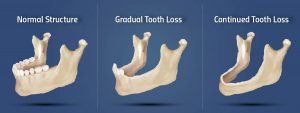
Choosing the right dental treatment option is not without its challenges. One common concern is bone loss, which can affect the success of dental implant treatments. Factors such as:
- Periodontal disease
- Trauma
- Diet
- Poor bite
- Tooth extractions
- Misalignment
- Osteomyelitis
- Tumors
can contribute to bone loss.
However, advancements in dental technology have provided ways to overcome such obstacles. For instance, additional procedures such as bone grafting or sinus lifts can help patients with insufficient bone density qualify for dental implants. Let’s delve into these solutions further.
Dealing with Bone Loss
Bone grafting is a common procedure used to address bone loss in dental patients. It involves the addition of bone to the area where bone loss has occurred. The bone can be sourced from the patient’s own body or synthetic bone material can be used. This procedure establishes a sturdy base for the dental implant.
A sinus lift is another procedure that can enhance bone density for dental implants. It involves a bone augmentation procedure that raises the alveolar crest height in the posterior maxilla and reinstates bone density in the jawbone.
Both these procedures require a healing period of approximately 3-6 months before the placement of the actual implant.
Managing Health Conditions and Medications
Apart from bone loss, other health conditions can also impact the success of dental implants. Conditions such as:
- diabetes
- cardiovascular disease
- hypertension
- osteoporosis
- chronic diseases
can affect the success of dental implants. Effective management of these conditions is essential for implant success. For instance, in patients with diabetes, maintaining good glycemic control before and after the procedure is necessary.
Certain medications can also have a negative impact on the success of dental implant surgery and may hinder the healing process. Some medications to be cautious of include:
- Proton-pump inhibitors (PPIs)
- Serotonin reuptake inhibitors (SSRIs)
- Certain antibiotics
- Over-the-counter painkillers such as ibuprofen and naproxen
- Nonsteroidal anti-inflammatory drugs (NSAIDs) like diclofenac
These medications can impede healing after surgery. It is important to consult with your dentist or oral surgeon about any medications you are taking before undergoing dental implant surgery.
Customizing Your Treatment Plan: Working with Your Dentist
 Choosing the right dental treatments is a collaborative process between you and your dentist. It’s important to work closely with your dentist to create a customized treatment plan that meets your needs and preferences. This involves discussing your goals, concerns, and expectations.
Choosing the right dental treatments is a collaborative process between you and your dentist. It’s important to work closely with your dentist to create a customized treatment plan that meets your needs and preferences. This involves discussing your goals, concerns, and expectations.
Your dentist can provide valuable guidance and suggestions based on their expertise and experience.
Finding the Right Dental Professional
Finding the right dental professional to perform your chosen treatment is crucial. The dentist should have the necessary qualifications and experience in dental implant surgery and creating dentures. You can verify the dentist’s licensing and experience by:
- Using the Dental License Lookup databases
- Accessing the state dental board’s website for licensure information
- Confirming their membership with the American Dental Association (ADA)
Don’t hesitate to ask your dentist about:
- The discomfort related to All-on-4 implants
- Specifics of the procedure
- Origin of the implants
- Procedure duration
- Success rates
- Personal suitability
- Potential necessity for bone grafting
- Recovery timeline
- Potential complications
- Long-term maintenance needs
A good dentist will be more than willing to answer all your questions and guide you through the process.
Preparing for Your Consultation
Before your consultation, it’s important to gather as much information as possible about your prospective treatment. Be prepared to discuss any concerns or apprehensions you may have regarding the acquisition of a removable prosthesis like overdentures. Upholding a comprehensive oral hygiene regimen when using overdentures is also essential to safeguard the well-being of your oral cavity and to prolong the lifespan of the prosthesis.
Communicating your goals and concerns to the dentist is crucial for fostering successful treatment collaboration. This practice guarantees that your specific needs are addressed and that you are at ease with the proposed treatment plan. Remember, your comfort and satisfaction are as important as the technical aspects of the treatment.
Summary
Choosing between All-on-4 dental implants and overdentures is a decision that should be based on your personal needs, preferences, and overall health. Both options have their unique benefits and drawbacks. All-on-4 implants offer a permanent solution and closely resemble natural teeth but are generally more expensive. Overdentures, on the other hand, offer a more affordable and removable alternative, with improved stability and comfort compared to traditional dentures.
Regardless of the option you choose, it’s important to work closely with a dental professional to develop a customized treatment plan. This involves discussing your goals, concerns, and expectations. Your dentist can provide valuable guidance and suggestions based on their expertise and experience. The goal is not just to restore your missing teeth but to provide a solution that improves your quality of life and boosts your confidence.
Frequently Asked Questions
What is all on 4 hybrid denture?
An all-on-4 hybrid denture is a type of dental bridge using implants to replace missing teeth, and it also addresses gum and bone loss around the missing teeth. It is offered at Rockville Dental Arts in Rockville MD.
What is better than All-on-4?
A better option than All-on-4 is the placement of 2, 3, or 4 fixed/non-removable bridges attached directly to the implants, as it requires much less bone removal, often none.
What is the downside of All-on-4 dental implants?
While rare, a downside of All-on-4 dental implants is the potential for a failed implant due to improper bone growth around the implanted screw, which can lead to difficulties in speech for some patients. Therefore, it’s important to discuss these potential risks with your dentist before undergoing the procedure.
Is an overdenture the same as All-on-4?
No, an overdenture is not the same as All-on-4. The All-on-4 appliance is permanent and doesn’t cover the roof of your mouth, while an overdenture is removable and covers the upper palate.
How long does the All-on-4 dental implant procedure take?
The All-on-4 dental implant procedure generally takes between one and three hours per arch, and up to four hours if both upper and lower jaws are treated on the same day.


